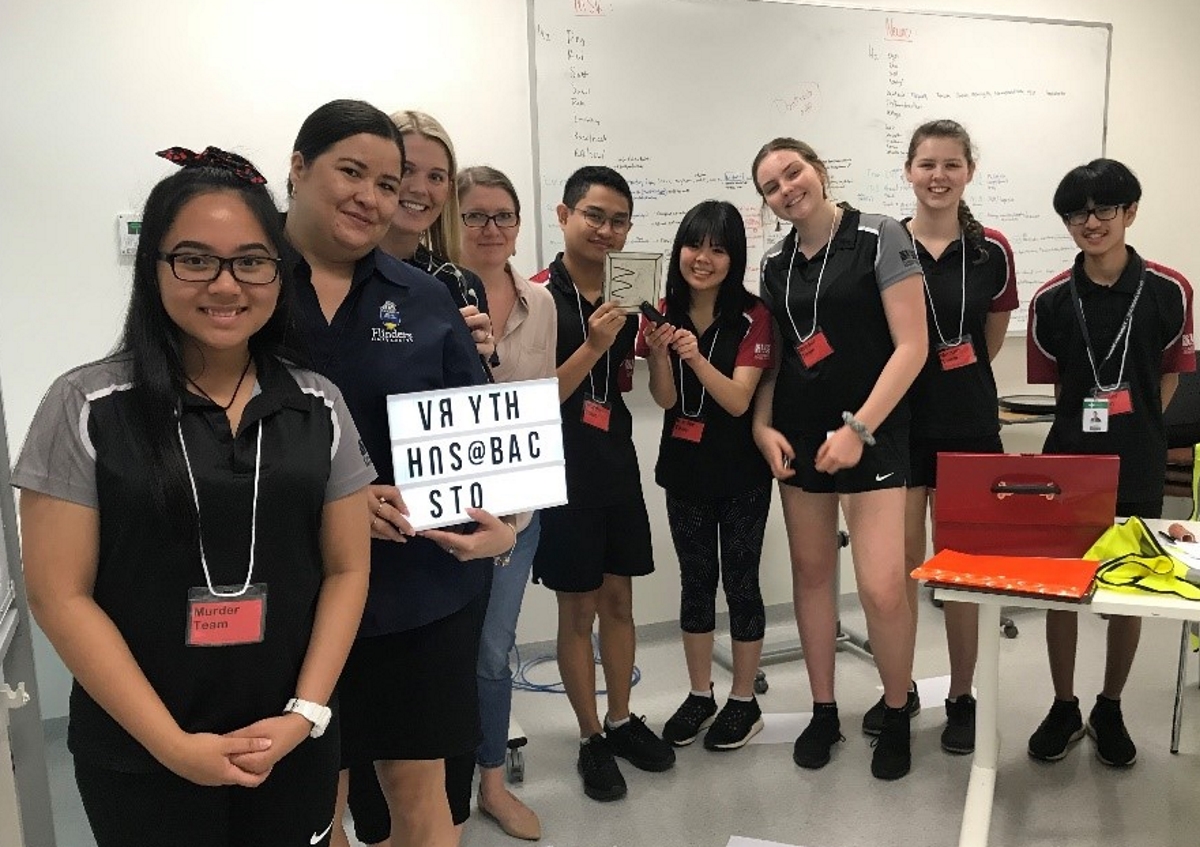
Flinders NT researchers have highlighted Escape Rooms as an innovative learning and teaching method that have student teams enthusiastically engaging in problem solving tasks.
Learning games created around Escape Room hypothetical situations have been especially successful in engaging high-school students who reside in areas of relative socio-educational disadvantage.
This has been significant in the Top End – the location of the Flinders NT study – as Escape Room engagement has been high with the high proportion of Aboriginal and Torres Strait Islander students at high schools in the Northern Territory, to stimulate activities that may positively influence students to enrol in university.
Escape Rooms are novel, time-limited games where teams of players are tasked to enter a simulated room setting and solve a series of puzzles to accomplish a specific goal or to “escape” by solving the final puzzle.
Staff at Flinders NT in Darwin trialled an Escape Room strategy to encourage more high school student visits to its campus and to increase their engagement with the University. The researchers were delighted with the results compiled over a two-year period.
The findings – Escaping the Norm: Games for Wider Participation with a Sense of Success. A Practice Report, by Leigh Moore and Narelle Campbell – have been published in Student Success Journal (DOI: 0.5204/ssj.1609).
“Escape Rooms are an effective way to engage high school students and high schools, along with university students,” says lead author and education academic Leigh Moore.
Part of the research involved an Escape Room competition, for which high schools entered teams of six students to design their own health-themed escape room. So far, 10 schools have competed in the competition over two years.
They reported that student participants reported a heightened sense of capability, confidence, purpose and resourcefulness, along with an elevated appreciation of academic culture.
““With further evaluation and development, the Escape Room competition could be used as a solid starting point for ongoing support through the years of study and into careers in areas of need,” says Associate Professor Narelle Campbell, academic lead for the research.
She now believes a longitudinal evaluation of student decision-making after participating in any of the Escape Room activities would be valuable in directing future school engagement, and possibly creating stronger pathways for students to higher education.
- Flinders NT is part of Flinders University and operates from five sites across Northern Territory. It aims to provide an innovative and accessible hub for education, research and workforce development that benefits each local community.

